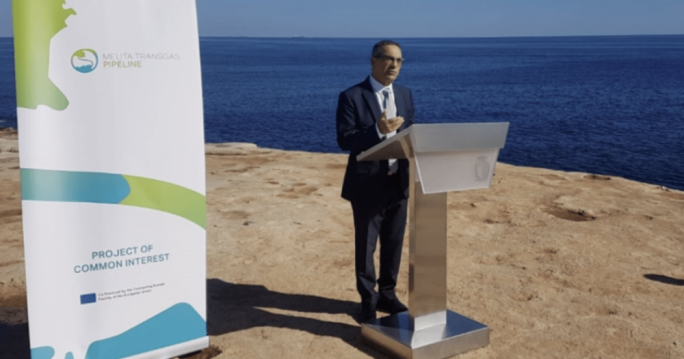2024: A sustainable and corrupt-free economy will thrive
For three years, a non-discriminatory energy subsidy has been keeping energy prices under control. This benefitted all the population strata and reduced production costs for exporters. Meanwhile, we notice differing growth trajectories between Europe and the US

The new package “Renew Europe“ proposed by the Commission aims to create a strong ambition for a Union where corruption has no place, where public officials are held to the highest standards of integrity, and where transparency and respect for public money are the rules of the house, and where the rule of law prevails.
This is precisely the space where politicians should ensure that corruption is heavily sanctioned when it happens. Let us in Malta take this challenge, be credible and empower our citizens, journalists, and watchdogs to fight corruption. It is only through this unwavering commitment that we can truly achieve a prosperous, fair and just Europe.
In 2021, Malta was grey listed by the world’s money laundering and terrorist financing watchdog, the Financial Action Task Force, as the country was deemed to not be doing enough to combat financial crime. However, Malta was removed from the grey list in June 2022, after it was determined that the country had made progress in addressing the identified strategic deficiencies.
Should there be discussions or concerns about Malta heading for another greylisting, it could be due to several potential reasons such as new or unresolved issues in AML/CTF framework may have been identified, suggesting that the country has not maintained the progress that led to its removal from the grey list. There is a lingering suspicion that Malta may be perceived as not fully complying with the FATF's 40 recommendations, which are the international standard for combating money laundering and the financing of terrorism and proliferation.
Cosseted in the light of the Vitals major corruption trial; where over 35 suspects shall be arraigned, one questions whether the political direction, since 2022 is dirigisme to maintain stringent AML/CTF controls. It may wane, leading to a relaxation of efforts and potentially resulting in another greylisting. It's important to note that the FATF continuously monitors jurisdictions for compliance with AML/CTF standards, and a country's status can change based on the effectiveness of its measures to combat financial crimes.
In passing, may we broadly comment that our economic model is primarily based on numbers – more cars, tourists, building permits, hotel rooms, property sales, super bank’s profits and multiple yachts in overcrowded marinas, etc., all measured in monetary terms. Upon reflection, readers concur how populist regimes frame their actions in a Faustian manner to resurgent nationalist sentiments. Typically, regimes engage in nepotism and cronyism by often relying on a combination of ideological rhetoric, gaslighting material benefits, media manipulation, and demonization of opponents to maintain continued support among hangers-on and voters.
Despite the contradiction between their professed principles and their actual behaviour, these regimes may effectively sugarcoat their actions to maintain their grip on power. One example of a regime in the European Union that has been accused of effectively sugarcoating its actions to maintain power is the Fidesz-led government in Hungary.
The Fidesz government has frequently used nationalist rhetoric to rally support and deflect criticism. Despite allegations of unveiled corruption and cronyism, the Hungarian government has implemented unprecedented social welfare policies aimed at benefiting certain segments of the population, such as pensioners and low-wage families. Such benevolent policies, including tax cuts and subsidies, have helped funnel support among many families who benefit from them.
Is there a similar stance happening in Malta? Not perfectly matching, yet one example is the fake medical aid to undeserving claimants is a one example (reaching a cost of €6million). Citizens having endured the non-closure of the brutal murder of a journalist and a surreal attitude of the police commissioner and the attorney general that the alleged mastermind is still under police custody. The atmosphere of impunity is seen by the Opposition to cut sympathy with government to promote its narratives, shape public opinion and maintain loyalty among followers.
The dosage has been heightened; now only a few weeks to a decisive MEP election (tax refund cheques issued to the multitude). Yes, party apologists hail the party leader as a pragmatic and innovative politician who fought the dire years of the pandemic and is now riding the crest of an economy boasting full employment with a fast rate of GPD growth. Our deficit is under control, and plans are in force to reduce it over five years to go down to the EU’s target of 1.5% of GDP.
Exports have plateaued, but demand through the domestic market is high, albeit inflation is eating out a larger slice of family finances. How is inflation being tackled in Malta? For three years, a non-discriminatory energy subsidy has been keeping energy prices under control. This benefitted all the population strata and reduced production costs for exporters. Meanwhile, we notice differing growth trajectories between Europe and the US.
The euro area shows signs of economic improvement, exiting recession with faster-than-expected growth in its top four economies in Q1 2024. However, overall output within the 20-country bloc remains lacklustre, with projected GDP growth of just 0.6% in 2024 and 1.5% in 2025. In conclusion, once rigid AML/CTF controls remain in place, there is expected an improvement of Malta’s regulatory framework. We now augur for FinanceMalta’s government-led ambassadors to go forth and reap the rich harvest.






